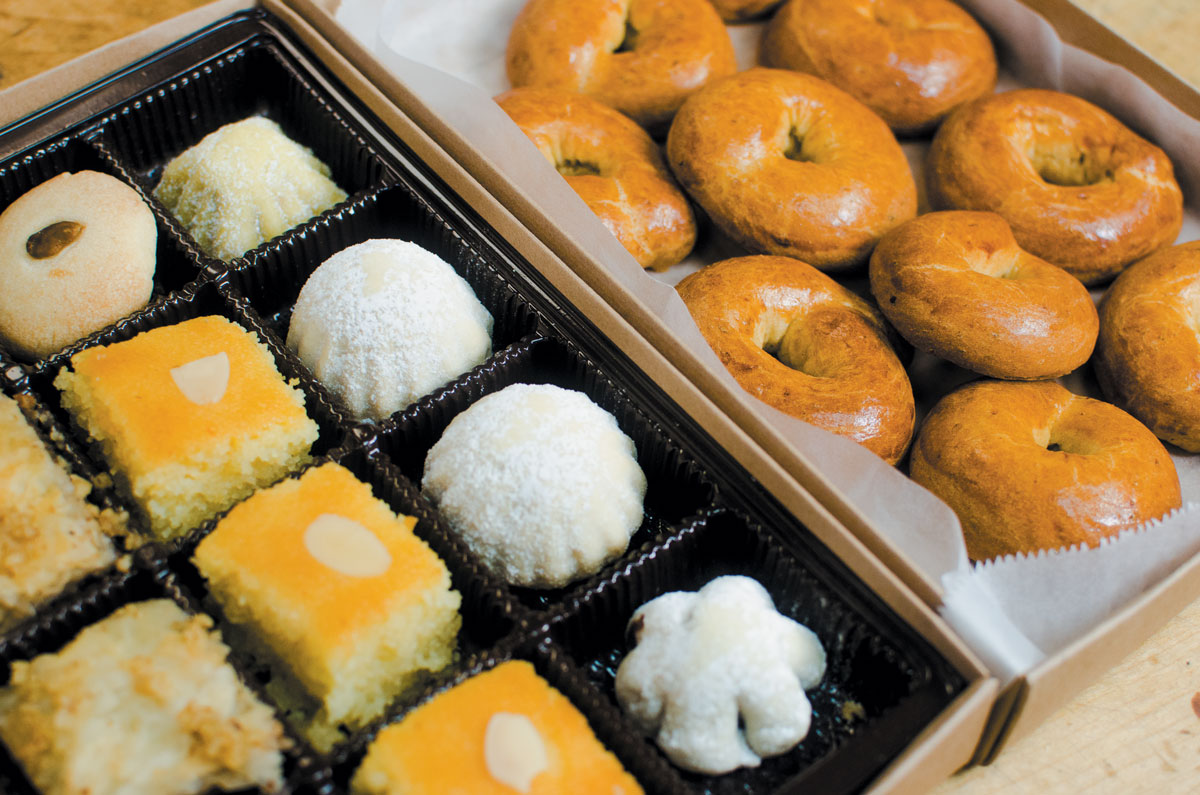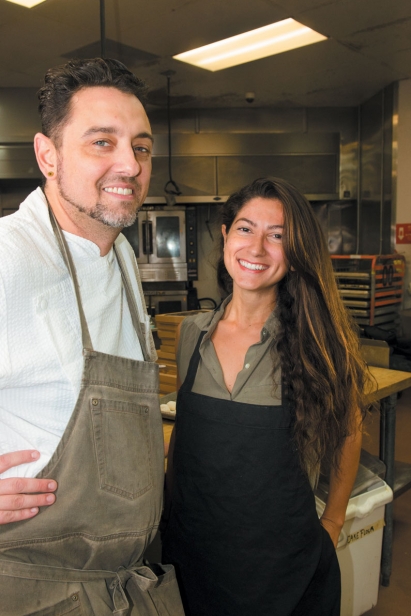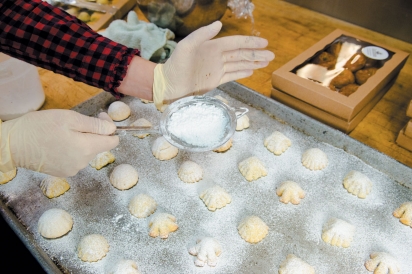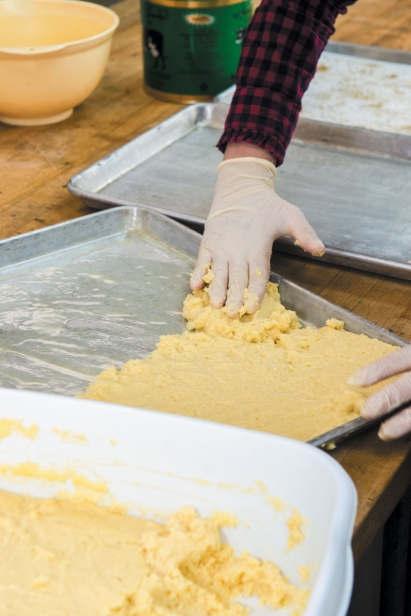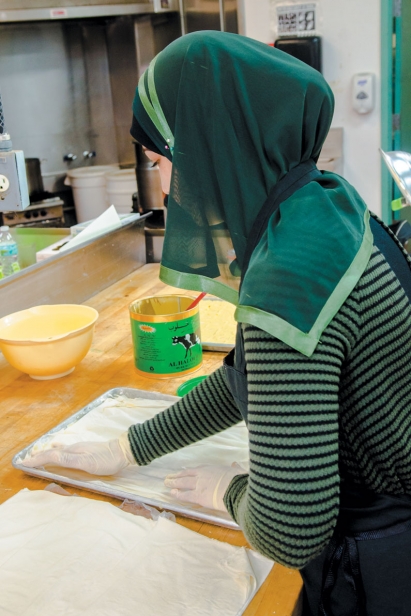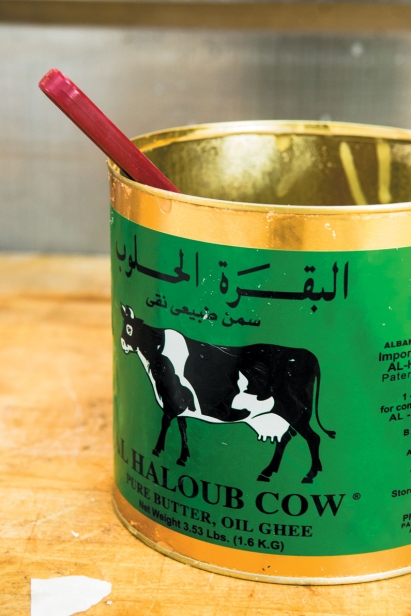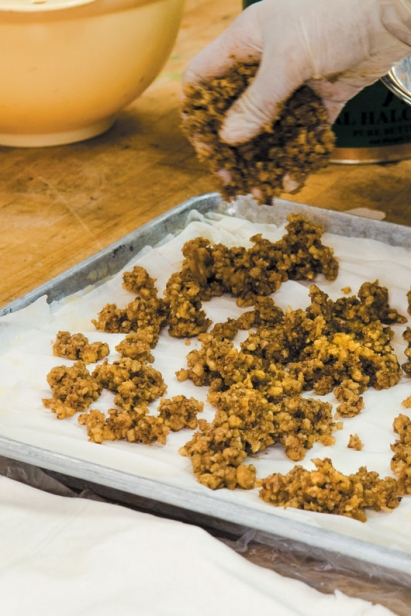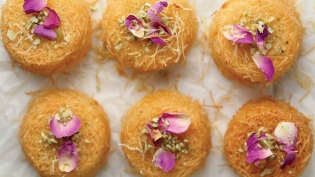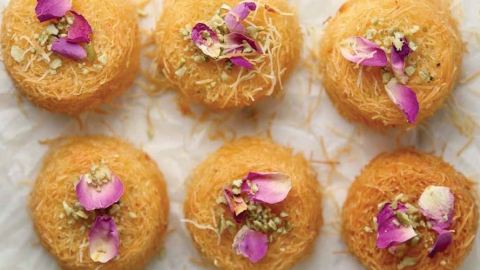Zaytouna: Sweet Side of Syrian Supper Club
In a kitchen in Palmetto Bay, a group of women gathers every week to bake pastries using family recipes. Their cheerful conversation amid the work at hand – brushing dough with butter, placing nuts atop unbaked cookies – reflects a timeless scene of preparing food. Here, the women are Syrian refugees who live in South Florida. Their business now is baking sweets, a job to give them an income, a sense of self-worth and opportunities to share their stories and culture through food.
The company is Zaytouna Foods – “zaytouna” means olive in Arabic, but feminine – and it’s the latest way of helping the women resettle. Last year, an enterprise called the Syrian Supper Club introduced South Floridians to awareness of the plight of the refugee women through an ongoing series of fundraising dinners at hosts’ homes. The women have cooked meals for businesses, church and temple groups, even a multicultural Chanukah celebration at Temple Beth Am in Pinecrest. Through Zaytouna, the women get on-the-job training in a real business that they own.
Starting Up
The new venture got started with the help of Christa Tawil, 29, and chef Aaron Dreilinger of Chef David Schwadron Cuisine and Event Design. Originally from Aleppo, Tawil came to the United States on a visa in 2012 and applied for asylum. Two years ago, she moved to Miami with her husband. She discovered the South Florida Syrian refugee women “randomly on Facebook and reached out. I wanted to help my people.” She got in touch with Kate Cruz, one of the principal organizers of the Syrian Supper Club of South Florida. What the women needed was a translator – and regular work.
Tawil met Dreilinger and they talked about finding a way to create a regular business for the women outside of the supper club. “The supper clubs are great, but they’re not teaching skills,” says Dreilinger. A baked goods business could provide permanent gainful employment for the women. He and business partner David Schwadron offered up their commercial kitchen space as an incubator for the fledgling Zaytouna Food, formed as a “conscious driven enterprise” to help the Syrian women resettle.
Zaytouna raised startup money at a Flavors of Syria event held in October at the Wynwood Yard. At first, Tawil worried about the response – ticket sales started slow. “But by the time the event rolled around, the line of people was around the block.” Guests from as far away as West Palm Beach came to taste baba ganoush, chicken shawarma, baklava, kibbeh, falafel and fattoush. Profits from the event paid for Zaytouna salaries and supplies – semolina, garbanzos, tahini, ghee (used instead of butter), rose water, walnuts and pistachios.
Obstacles
So far, the biggest business challenges are helping the newcomers navigate everyday life in South Florida – enrolling their kids in schools, figuring out transportation, learning about life here while not knowing the language. The Muslim Women’s Organization of South Florida and Project Motherpath offer resettlement help. For Zaytouna’s women, Dreilinger and Tawil are also there to lend a hand.
Handling logistics often falls to Tawil, who serves as translator, facilitator and taxi driver for the women, who live in Miami Gardens, North Miami Beach, Homestead and Davie. “I get a call, they can’t come in because of car problems,” Dreilinger says. “Now they know about Uber.” And there’s a workplace learning curve. The women, most of whom have small children, did not typically work in Syria.
Growing the Business
Tawil, who also brings marketing savvy to the business, says Zaytouna pastries will be sold at farmers markets in Coral Gables and Aventura, where much of the clientele is Jewish – “they understand the cuisine” – and online. They want to build their business by selling their pastry boxes to grocery store chains and retail outlets. The packaging is slick, the pastries are delicious, and, perhaps most important, the story is universal in its appeal.
The women are Muslim, Dreilinger is Jewish, and she is Christian, Tawil points out. “We believe that food can bridge the cultural divides that separate us.”
Making Syrian Sweets
The Syrian women – Mona, Iman and Sondos – meet at the commercial kitchen in Palmetto Bay to prepare sweets. Today, they’re making maamoul, baklava, namoura and chocolate bark.
Zaytouna Foods
Find Zaytouna Foods at Whole Foods Markets, or order online. Baklava ($20), 12 pieces to the box; chocolate zaatar bark, $10; ghraybeh ($15), butter cookies topped with pistachio; maamoul ($15), butter cookies stuffed with dates, sweetened walnuts and pistachios and dusted in powdered sugar; namoura ($15); rich semolina cake soaked in syrup; kleija ($15), date paste spiced with cinnamon and cardamom and wrapped in pastry; zaatar ($10), a spice blend that includes thyme, sumac, black pepper and sesame seeds.


